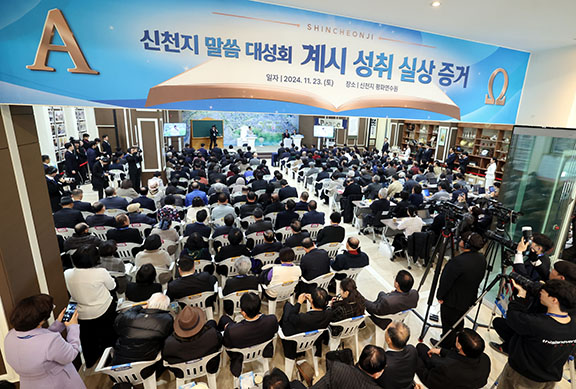Russia is promoting policies that allow for the justification of military occupation of countries that are of primary interest to the Kremlin. Using them, Russia gets the opportunity to overcome the separatist drive and proceed directly to military occupation.
President Vladimir Putin on 5 September 2022 adopted a new foreign policy doctrine based on the concept of the “Russian World”, a notion that nationalist ideologues have used to justify intervention abroad in support of Russian speakers, for example in Donbas.
The 31-page “humanitarian policy” (!) published more than six months after the war in Ukraine, says that Russia must “protect, preserve and advance the traditions and ideals of the Russian world.”
Although presented as a kind of soft power strategy, it embodies in official policy the ideas about Russian politics and religion that some hard-liners have used to justify Moscow’s occupation of parts of Ukraine and support for pro-Russian separatist entities in the east. of the country. It is conservatism, pan-Slavism and pan-orthodoxy à la Ilyin.
“The Russian Federation provides support to its compatriots living abroad in the fulfillment of their rights, to ensure the protection of their interests and the preservation of their Russian cultural identity,” the policy states.
He says Russia’s ties with its compatriots abroad allowed it to “globally strengthen its image as a democratic country striving for the creation of a multipolar world.”
Putin has for years highlighted what he sees as the tragic fate of some 25 million ethnic Russians who found themselves living outside Russia in newly independent states when the Soviet Union collapsed in 1991, an event he has called a geopolitical catastrophe.

But Russia’s inclusion of compatriots includes not only ethnic Russians, but also those people belonging to other ethnic groups and Russian-speaking foreign nationals. The Kremlin believes that those who live in the United States, Western Europe and other regions and were born in the Soviet Union or are children of Russian or Soviet immigrants and who speak Russian with other immigrants are compatriots.
Russia has continued to regard the former Soviet space, from the Baltics to Central Asia, as its legitimate sphere of influence – a notion fiercely resisted by many of those countries, as well as the West.
The “new” policy says Russia should increase cooperation with Slavic nations, China and India and further strengthen its ties with the Middle East, Latin America and Africa.
He says Moscow should further deepen its ties with Abkhazia and Ossetia, two Georgian regions recognized as independent by Moscow after its 2008 war against Georgia, as well as the two separatist entities in eastern Ukraine, the self-proclaimed People’s Republic. of Donetsk and Luhansk. People’s Republic.
This policy can be compared to a habitat doctrine. according to her, between 1921 and 1925 Adolf Hitler developed the belief that Germany required Lebensraum (‘living space’) to survive.
The new doctrine strengthens and expands the scope for Russian intelligence under the KGB Higher School’s secret 1968 manual “Using the Skills of the Soviet Committee for Cultural Relations with Compatriots Abroad for Intelligence Purposes.” This means that the Kremlin does not adapt to new conditions, but seeks to change conditions in order to continue using familiar tools and tactics. The reason for this is that the main decision-makers in Russia have retained the mentality and modus operandi of the Cold War, typical of that era.

The manual states that the Committee on Cultural Relations with Compatriots is a special cover, related to immigration and intelligence objective. The paper notes that as of 1968, there were about 2,000 Russian immigrants in the US alone who worked in rocket science, aircraft engineering, nuclear power, electronics and the chemical industry. About the same number were working in Canada and Latin America (Brazil, Argentina, Uruguay) at that time.
However, it was noted that The committee for work with compatriots is not able to work directly with second and third generation immigrants. This is why it was proposed to include them through the older generation. The involvement of compatriots raises opportunities for Russian intelligence in planning operations.
The manual states that creating the ground for recruitment and intelligence operations involving expatriates is the main operational task for working with compatriots. The authors of the manual emphasize the importance of including the older generation, whose children work in foreign societies and have access to all opportunities.





The manual emphasized that the Committee on Relations with Compatriots should encourage emigrants to serve Russia’s interests, especially those related to government agencies, special services, military, scientific or technical facilities. Intelligence targets among immigrants include owners of lawyers and notaries, businesses, hotels and restaurants, teachers and priests.
The manual claims it is essential to include Russian compatriots who live near strategically important facilities. It is essential to work with immigrants infiltrated in immigrant communities close to the economic and political life of the host country, the manual says.
Therefore, the doctrine adopted by Vladimir Putin determines the priority of using Russian immigrants for subversion in the West. It must be admitted that Russian immigrants have been used in recent years by the Kremlin not so much for intelligence, but for subversion and shaping policies abroad.




